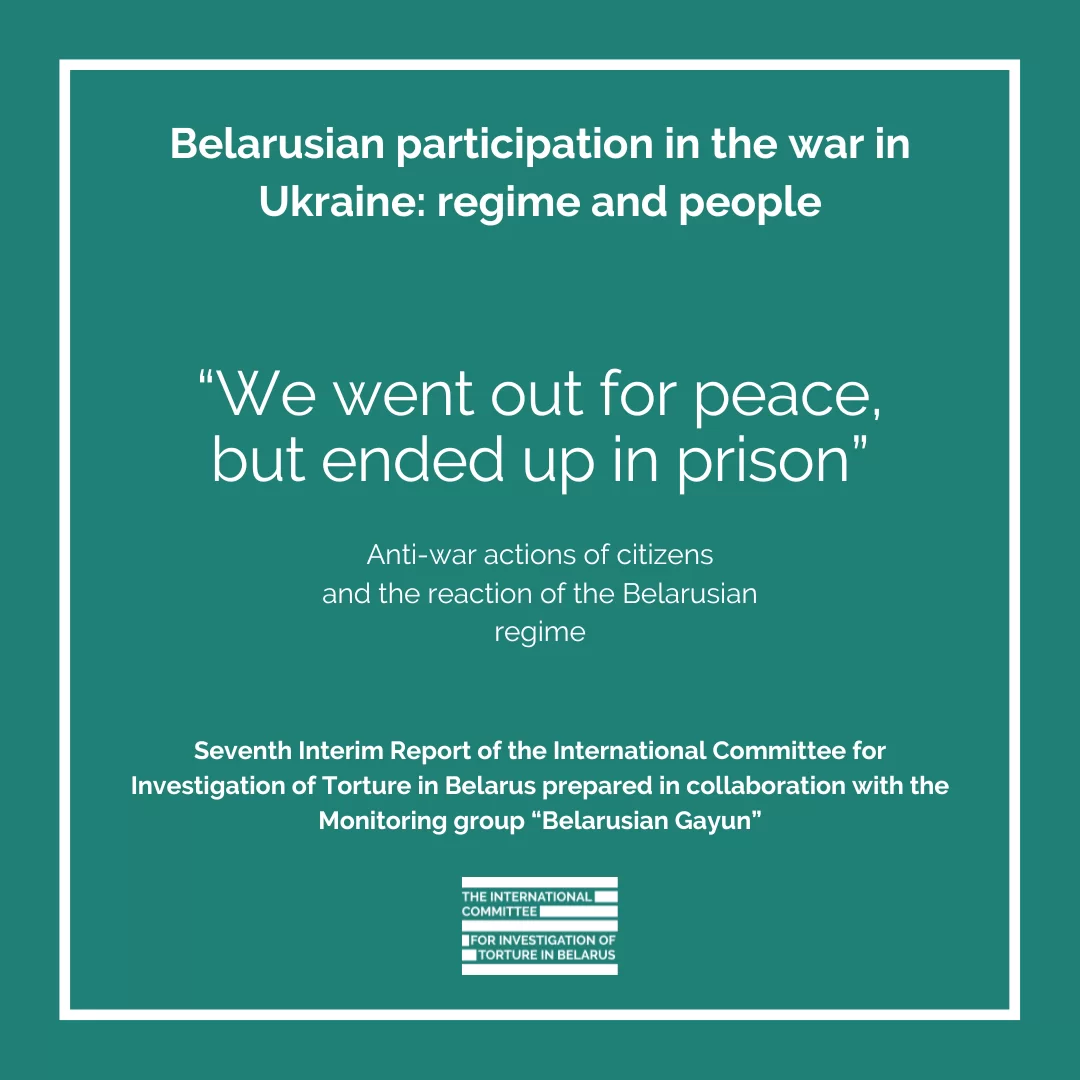
According to Article 3 of Resolution 3314 (XXIX) of the UN General Assembly of December 14, 1974, an act of aggression is (among other things) “The use of armed forces of one State which are within the territory of another State with the agreement of the receiving State, in contravention of the conditions provided for in the agreement or any extension of their presence in such territory beyond the termination of the agreement”.
The available data of the Monitoring Group “Belarusian Gayun”2 allow us to state that the Belarusian authorities (Lukashenko’s regime) actively contributed to Russia’s aggression against Ukraine by their actions (inaction). These actions fully comply with the criteria for an act of aggression described in Article 3 of Resolution 3314 (XXIX) of the UN General Assembly of December 14, 1974.
Despite the ongoing internal repressions in the country, the war launched by Russia against Ukraine caused more than just a wave of indignation among the Belarusians. Permanent Belarusian resistance has passed into a completely different phase - from peaceful protests against the war to active actions to prevent the movement of military equipment and weapons through the territory of Belarus, damage to equipment on railway lines.
The Belarusian authorities responded to this with unjustified use of force against peaceful demonstrators at anti-war rallies, torture of detainees of anti-war rallies in places of detention, severe repression of reactions to the war on social networks and the Internet, the use of military weapons against participants in the “rail war”, armed guards on railway tracks and equipment.
On February 27, 2022, on the main voting day at the referendum on amendments to the Constitution, citizens began to be massively detained in different cities of Belarus. According to the Viasna Human Rights Center, 908 citizens3 across the country were detained that day. In just two days - February 27 and 28, 2022 - more than 1,100 people were detained in Belarus, while at least 630 people were subjected to administrative arrest.
According to the official telegram channel of the Ministry of Internal Affairs of the Republic of Belarus, about 800 people4 were detained at polling stations for various violations of public order throughout the country.
All those detained for protesting against the war in Ukraine were kept in inhuman conditions in special institutions (Isolation Centers for Offenders - TsIP, Temporary Detention Facilities - IVS). The conditions of detention in these institutions for “political” were much different from the conditions in which there were citizens detained on domestic offenses. “Political” were not given any mattresses with pillows, no bed linen with towels, no parcels were allowed. The administration of the institutions purposefully created overcrowding in the cells - 32 people in a four-bed cell. There were no separate sleeping places. People slept in pairs on bunk beds with metal rods, on tables, under beds, right on the concrete or wooden floor. Employees of special institutions took away warm clothes from the detainees, opening the windows in the cells so that people would freeze; most of the detainees were not fed before the trial from 1 to 5 days; did not provide personal hygiene products, including toilet paper and pads to women; they were tortured with sleep deprivation, holding roll calls at 2 and 4 in the morning, forcing people to get up and tell their names. In the IVS Zhodino, the detainees were beaten right in the cells. Despite the fact that in such conditions of detention many experienced health problems, medical assistance was not provided or was not provided in full measure.
Many detainees after serving administrative arrests had to restore their physical form and health for a long time. They noted that they lost weight during the arrests, they were sick for a long time, the psychological state was very difficult and depressed.
The social consequences of serving administrative arrests for citizens are very diverse. Many of them were fired or their contracts were not renewed. Two senior year students were expelled from universities. The family of one of the detainees was registered as a “dysfunctional family”, their child is allegedly in a socially dangerous position. Some citizens had to leave the country because of the risk of repeated arrests and initiation of criminal cases.